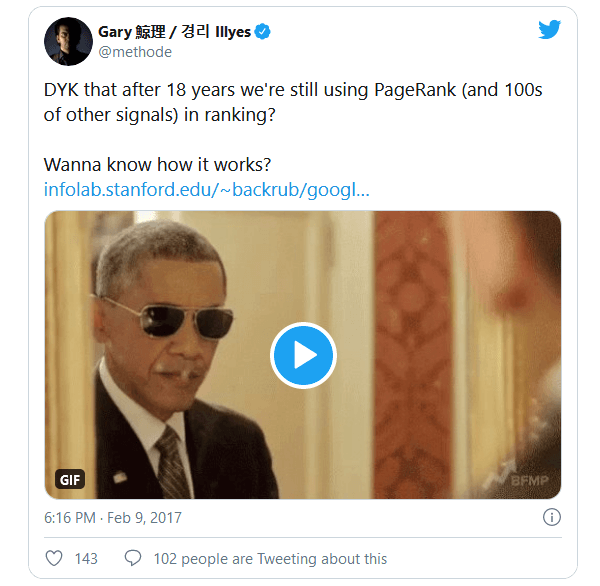Search Engine Optimisation is unfortunately vulnerable to SEO myths. These are ideas that have been conclusively debunked elsewhere but somehow get discussed in client meetings or by self-proclaimed SEO ‘experts’ that should know better.
My theory is that because SEO actions often take weeks and months to show an effect, myths are hard to disprove quickly. This could result in you wasting valuable time and resources in pursuing the wrong actions and sometimes damaging your search traffic.
Here are some of our favourite SEO myths to leave behind in 2020:
#1 Keyword stuffing your content
Adding relevant keywords to your website pages helps search engines (and users) figure out what your page is about. However repeating the keyword unnaturally or adding multiple variations of a term can harm your SEO and certainly confuses the user.
“If you want to buy some affordable running shoes, we’ve got you covered! We have a wide variety of the most affordable running shoes that you cannot miss. These affordable running shoes are not only affordable but also come in vibrant colours.”
The example above has gone overboard with the use of the target keyword that it may create a bad experience for the users.
First and foremost your website copy should read well and be appealing. It should include keywords and the keyword density should be between 1 to 2 %:
Keyword Density = The number of times the keyword appears / The total number of words X 100
If you have a blog post of 600 words then the target keyword can appear 6 to 12 times.
#2 Google’s Page Rank is not important and an SEO Myth
Google’s Page Rank used to be a publicly available score out of 10 for all websites. Al though Google stopped publicly publishing Page Rank in 2016, in 2018 Google’s Gary Illyes confirmed that it is still used to rank websites.
Some argue that as Google don’t publish Page Rank any more it is not worth considering. There is some merit in not chasing Page Rank Unicorns, but PageRank is still a ranking signal, which means that getting high-quality links to your web pages still matters.
#3 Social signals impact SEO
Social media is an excellent way of driving traffic to your website and generating awareness of new products. That said, there is no firm correlation between search engine rankings and busy social media presence.
According to Google’s John Mueller, social signals don’t directly impact rankings.
That’s probably because social signals are so stupendously easy to manipulate.
However if this is true, why do many studies show a correlation between social shares and rankings?
There’s no definitive reason for this, but these are the two most significant contributing factors:
- More shares lead to more exposure, and that often leads to more backlinks (which are a ranking factor).
- Pages that rank well in Google get more traffic, and some of those people will share the content on social media.
It’s a classic example of correlation not causation. If you have excellent content that tends to generate more social shares and also more links and higher search engine rankings.
#4 Using tabbed content harms your SEO
Modern web pages are often full of tabbed content, accordions and all sorts of other ways of hiding text until the user click on a heading or arrow. It’s a way of making pages web pages more appealing and usable, improving the user experience if done properly.
Google discarded the websites that used the “click-to-expand” type of content because it thought they were hiding it from the user, exactly the opposite of its intention. But as you all know, there might have been a grain of truth in Google’s position towards tabbed content because there are all sorts of people trying to trick Google.
John Mueller stated that Google may not rank the page for the tabbed content because it knows users do not see the content by default.
Not all hidden text is considered deceptive. For example, if your site includes technologies that search engines have difficulty accessing, like JavaScript, images, or Flash files, using descriptive text for these items can improve the accessibility of your site.
Using tabbed content is not bad for SEO and Google won’t penalize your site if it is implemented in a non-spammy way. The hidden text or links is considered spammy if it there solely for search engines rather than visitors.
#5 PPC Advertising Helps Rankings
It’s a conspiracy theory that if you pay for advertising on Google through Ad Words you will get higher organic rankings. In truth Google’s algorithm for ranking organic search results is completely separate from the one used to determine PPC ad placements.
Running a paid search advertising campaign through Google at the same time as carrying out SEO might benefit your site for other reasons, but it won’t directly benefit your ranking.
However if you use PPC (pay per click) advertising to pull traffic onto a website then you will probably generate backlinks, repeat visits and shares as long as you have good quality content.
This is another example of correlation but not causation.
Final words
The best advice we can offer is to focus on your users and build the best website you can with useful content and good user experience. Tell people about it through social media, content marketing and press release and don’t try to trick search engines like Google into boosting your website in search results.
Get in touch with Dinesh on 07941 686113 if you need help on web design, web hosting, SEO services, domain names or email marketing.
Further reading
Image by Anja🤗#helpinghands #solidarity#stays healthy🙏 from Pixabay








